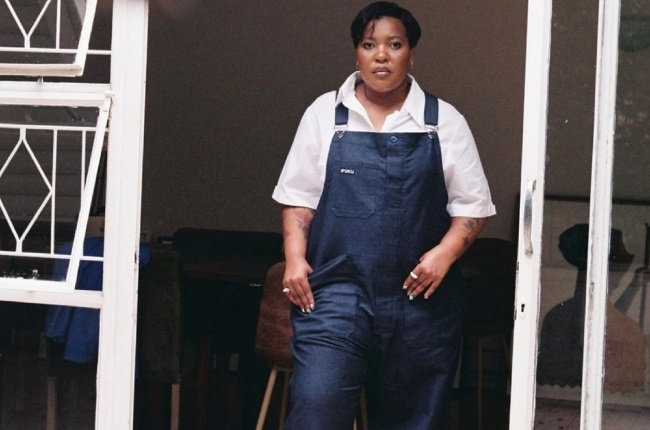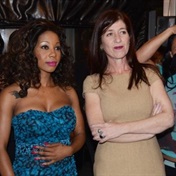
Journalist and author sounds an alarm about churches such as "The Family", who are called many things, including pentecostal, evangelical, charismatic, in this edited extract from her book.
Labelling an unfamiliar expression of institutionalised faith a cult is simply more straightforward and less emotionally draining for me.
Talking about how I spent most of my twenties attending and serving in a white-led multiracial megachurch feels like stepping on a piece of Lego.
The pain was, is, obliterating.
It demands my attention.
It never leaves.
It ebbs and flows.
I am a former member of what I will call The Family, arguably one of the largest megachurch of its kind. I use the term ‘The Family’ because it is the perfect allegory. Many churches refer to themselves as a family and hold the institution in high regard.
Read more | When Love Kills: The tragic tale of AKA and Anele
The family structure is powerful because it reinforces hierarchy and demarcates a particular pecking order.
We learn from our own families.
We are socialised to consciously negotiate our place within the family structure and to behave in ways that ensure that this belonging remains intact.
Our families are our ‘first agents of socialisation’. This is where we, as children, learn how to exist and observe the norms and boundaries we can (and must) operate within in order to stay within this specific social group.
Our families are our first teachers, where we learn how we’re expected to behave, to communicate and what values are important.
It is where we learn how to be human. This is thus the basis of how we operate in other social groups. The family unit is also, however, where we’re first controlled in and by society.
Churches like the one I used to attend insist on the need for congregants to have spiritual fathers and mothers — more mature Christians who will guide you and keep you accountable on your spiritual journey.
But the founder or main pastor of the church will be everyone’s spiritual father, reminding us that the very basis of our existence is built on rules on how we should behave.
Families and, in particular, parenthood, are fundamental to upholding the structure of the church. Think about the power dynamics between parents and their children: parents hold most of the power because they are responsible for the children who depend on them to stay alive.
When social groups outside the family invoke familial ties in their formation, they are also insidiously and sometimes deliberately implying the same hierarchy.
Writing about The Family means that I am also writing about my own biological family and how my inability to conform to its particular social norms and rules left me alienated and desperate to find another family.
For many, family means compromising – to the extent that you are compelled to choose the family over yourself – and being afraid to speak up because that is seen as betrayal on multiple levels.
To be a ‘good’ child is to be the one who acts for the benefit of the family.
When you don’t (as in the case of my own immediate family, The Family and even some former workplaces), you’re given an ultimatum: conform or leave.
Read more | Prescription: Rare glimpses into an SA doctor’s daily life
Many of us are from families that operate from a position of ‘My house, my roof, my rules’ and other many iterations of a similar mentality – in other words, conform or become socially ‘dead’.
I left my family for The Family.
There, I conformed to the social norms and rules until, just as in my family, they became too were incompatible with who I was, who I was becoming and who I wanted to be. So I left The Family too.
On both accounts, I failed to comply with the expected behaviour of the collective, which resulted in discipline as a way to enforce compliance.
Shaming and chastising others who operate outside the rules of the family is common.
Whereas, as a child, I was spanked and yelled at because I was being ‘disrespectful’, in The Family, I was silenced through scripture and accusations of spreading a ‘spirit of division’. At work, I was accused of failing to meet my responsibilities and not fitting the work culture driven by the head of the organisation.
My questions and concerns about how the church dealt with certain issues were seen as acts of rebellion, with the intention of bringing disunity to the unit.
Initially, many people in my church seemed unconcerned when I started talking openly about race and racism and how it impacted not only my life as a black woman but also the lives of the black students in the youth zone I ran.
My thoughts still fitted neatly into the box of respectability leaders and fellow churchgoers had put me in without my permission or knowledge.
They loved my ‘fire’ – but only until they realised I was on the side of students occupying UCT in protest against the statue of Cecil John Rhodes looming over campus, that we stood in solidarity with the Open Stellenbosch student activists demanding to be treated like humans and the Fallists, movements that would reverberate across the country.
In me they identified the ‘spirit of division’ and I became a threat that needed to be beat into submission or rebuked. To speak out was to be against the Lord. Where did this leave me? Writing a book that would sound the alarm about one of the most significant threats to our democracy, that’s where.



















